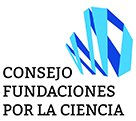A team from the Faculty of Chemistry of the University of the Basque Country that was awarded the 10th Research Prize granted by the Esteve Foundation. Among 45 nominated articles, the development of a family of synthetic molecules able to restrain liver metastases by 50% in experimental melanoma was considered by the international jury as the best pharmacological work published by a Spanish team between 2004 and 2005. Its merit: designing inhibitors that trick cancer cells by imitating the protein properties that allow these cells to invade healthy tissue.
Application of stereocontrolled stepwise [3+2] cycloadditions to the preparation of inhibitors of alpha(4) beta(1)-integrin-mediated hepatic melanoma metastasis, published in the German journal Angewandte Chemie on 13 April 2005, is the article that was awarded the 10th Research Prize granted by the Esteve Foundation and endowed with 18,000 Euros. The awards ceremony was held on 11 July 2005 at the Edificio Korta of the Guipúzcoa Campus of the University of the Basque Country.
An international jury awarded the prize and the following honorable mentions:
–PI3Kγ inhibition blocks glomerulonephritis and extends lifespan in a mouse modelo of systemic lupus, Barber DF, Nature Medicine 2005;11 (9)
–Increased ocular levels of IGF-1 in transgenic mice lead to diabetes-like eye disease, Bosch F, The Journal of Clinical Investigation 2004; 113: 1149-1157

